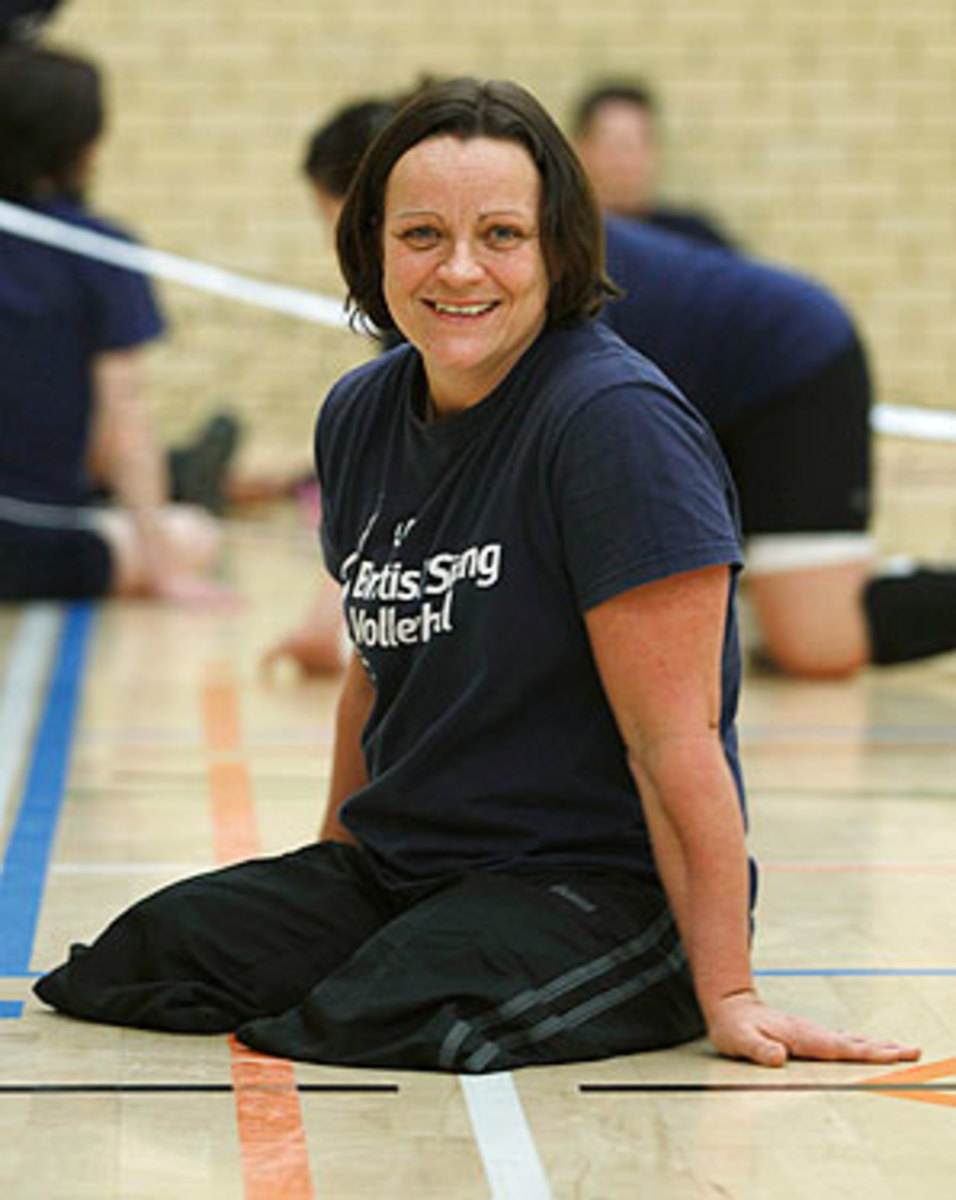
Britain hopes to overhaul attitudes during the 2012 Paralympic Games
Great Britain's vow to stage Paralympic Games equal to its able-bodied counterpart is writ large in the London 2012 organizational chart. It shows a single entity planning both events, not two operating in parallel. That's why Chris Holmes, who won 15 Paralympic medals between 1988 and 2000 as a visually impaired swimmer, carries the title of "director for Paralympic integration," rather than an honorific like Sebastian Coe's as title as "chairman" of a stand-alone Paralympics.
But Holmes has a list of achievements comparable to Coe's. And upon paying a visit to Canary Wharf recently, where I spent time with Holmes and his black lab guide dog, Lottie, I was struck by his similarly evangelical manner. He really is every bit the LOCOG leader's equal -- a co-Coe, as it were.
At 14, Holmes was already a county-level swimmer in Worcestershire when he woke up one morning almost completely blind from something called Familial Exudative Vitreoretinopathy (FEVR), a hereditary disorder that causes ruptures in the retina.
"Before I lost my sight I had three goals: to do 'A' levels [a college prep exam], to get a place at Cambridge, and to swim for my country," he says. "Even in that darkest moment I thought, Well, have these goals changed? And they hadn't."
He joined a club in Birmingham, promising to follow the same regimen as the aspiring Olympians who trained there.
"My coach wasn't going to make any allowances, so it was a phenomenal environment to be in," says Holmes, who two years later (1988) was greeted by capacity crowds in Seoul, the city that began the modern practice of staging Olympics and Paralympics in the same place within several weeks of each other. "I grew up working class and never went abroad on holiday. To travel halfway around the world and find full stadia was absolutely extraordinary."
Holmes did indeed go on to Cambridge, where he studied politics, and soon became a Paralympic activist. He called attention to subpar accommodations in Atlanta and has worked since to ensure steady improvement in facilities so that in London, he says, "We'll focus on putting the athletes at the center, so all they have to think about is delivering the greatest performances of their lives."
One of those Paralympians will be a sitting volleyball player from the U.K. named Martine Wright. On the morning of July 7, 2005, barely 24 hours after the IOC had awarded her hometown the 2012 Games, Wright was riding a Central Line train, reading about London's historic bid victory, when three suicide bombs ripped through the transport system. The attacks killed 52 people and injured more than 700 others, among them Wright, who left both legs behind when she was pulled from the mangled remains of a tube car near Aldgate station. After a year in the hospital and nine operations, she took up sitting volleyball as part of her rehabilitation.
In the States we have 9/11; in Britain they have 7/7, and there's no one more symbolic of the nation's solidarity with the Paralympics than Martine Wright. But Brits began lining up to support the Paralympics long before Wright was named to the team last week. Tickets for the Paralympic Games went on sale one year out, last Sept. 8, the day after British prime minister David Cameron and London mayor Boris Johnson played wheelchair tennis in Trafalgar Square; by the end of the month LOCOG had sold more than a million of them, and organizers are confident that all 2.2 million will eventually find a buyer. Every British broadcaster bid for the rights, with the winner, Channel 4, securing them by spending more than $14 million. The network plans to deliver more than 150 hours of coverage, plus documentary programming that will tell athletes' stories and educate spectators in the nuances of Paralympic disciplines in advance of the Games. That will make for a more genuine enthusiasm than in Seoul in 1988, where school children and church groups filled venues largely at the government's direction.
Brits, who placed second only to China in the medal count in Beijing, feel proprietary about the Paralympics for reasons beyond Martine Wright. One of the two mascots for London 2012, Mandeville, evokes the hospital at Stoke Mandeville where a refugee from Nazi Germany, Dr. Ludwig Guttmann, pioneered rehabilitative treatment of spinal injuries in British World War II veterans. Guttmann vowed to banish the write-'em-off attitude toward "cripples" then widespread even in the medical community. An archery competition at Stoke Mandeville, on the very day that the 1948 Olympics opened in London, launched the Paralympic movement, which today features elite athletes with world-class expectations in 20 sports.
Overhauled attitudes can be among the most profound legacies of a Paralympics. At Chris Holmes' first Games, Paralympians weren't lodged in the Olympic Village because post-Games plans called for the apartments' sale to the public, and Seoul organizers feared the units might otherwise go begging because of the stigma attached to the disabled.
"The 1988 Paralympics fundamentally changed that society," Holmes told me. "The 2018 Winter Games in [the South Korean city of] Pyeongchang will be totally integrated. Thirty years on, you discover that these things loop wonderfully around."





